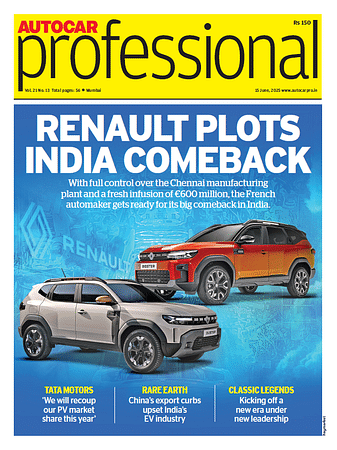Private Enterprise Urban Glide Enters India's Public Bus Market
New joint venture to operate 500 buses in first year under government's Gross Cost Contract model.
Komorebi Tech Solutions, parent company of urban mobility platform Cityflo, has formed a joint venture called Urban Glide with Globus Trans Solutions LLP to operate public buses under India's Gross Cost Contract (GCC) model. The new company will begin with 500 buses in its first year as India transitions over 200,000 state-owned buses to public-private operations, representing an annual market opportunity of ₹100,000 crore.
The GCC framework places service delivery in the hands of private fleet operators while the government maintains control of routes and fare policy. This model has been successful in transit systems in Singapore and the UK.
"We believe this will be one of the most consequential infrastructure transitions in urban India," said Jerin Venad, CEO of Cityflo. "The opportunity is not just operational—it's generational. India is going to move over 200 million people a day on zero-emissions, clean, well-run buses. Urban Glide is our commitment to building at the scale and standard that this moment demands."
Urban Glide partners with Globus Trans Solutions LLP, founded by public transport veteran Victor Nagaonkar, who led operations at BEST for over four decades, and Sunil Solanki, who has extensive experience in public transit companies including PMPML.
The venture will initially operate 150 buses across the Mumbai Metropolitan Region (MMR) with plans to expand nationwide as more GCC contracts are awarded.
India's public bus system, traditionally run by State Transport Undertakings (STUs), has faced challenges including funding gaps, aging fleets, and poor commuter experience. The new model aims to address these issues through private sector efficiency while maintaining public oversight.
Urban Glide plans to focus on asset lifecycle control, professional operations and driver management, data-driven route optimization, and safety protocols.
Venad added: "We've seen this move in other sectors: regulation opens, capital flows in, and the incumbents are those who can build at scale. Public transport is getting its Jio moment."
The GCC model includes government subsidies for electric vehicle operations and a Payment Security Mechanism to mitigate risks for operators. The sector requires operators capable of managing large fleets with strong compliance systems, safety-first operations, and long-term investment perspective.
RELATED ARTICLES
Fast Lanes & New Rules: What Drove the Auto World This Week
From the full price list of the Tata Harrier EV to the ABS mandate on scooters and bikes, here are the most important bi...
Ather Energy to Launch Battery as a Service (BaaS) Model for e2Ws
The electric two-wheeler maker, which targets to double its retail footprint to over 750 stores this year, is also worki...
Michelin India Opens Tyres & Services Store in Vijayawada in Partnership with Sanghvi Car Shoppe
Located on MG Road, the new outlet expands Michelin’s retail footprint in South India, offering tyre services and diagno...





 By Shruti Shiraguppi
By Shruti Shiraguppi
 12 May 2025
12 May 2025
 2650 Views
2650 Views





 Autocar India
Autocar India



 Sarthak Mahajan
Sarthak Mahajan

